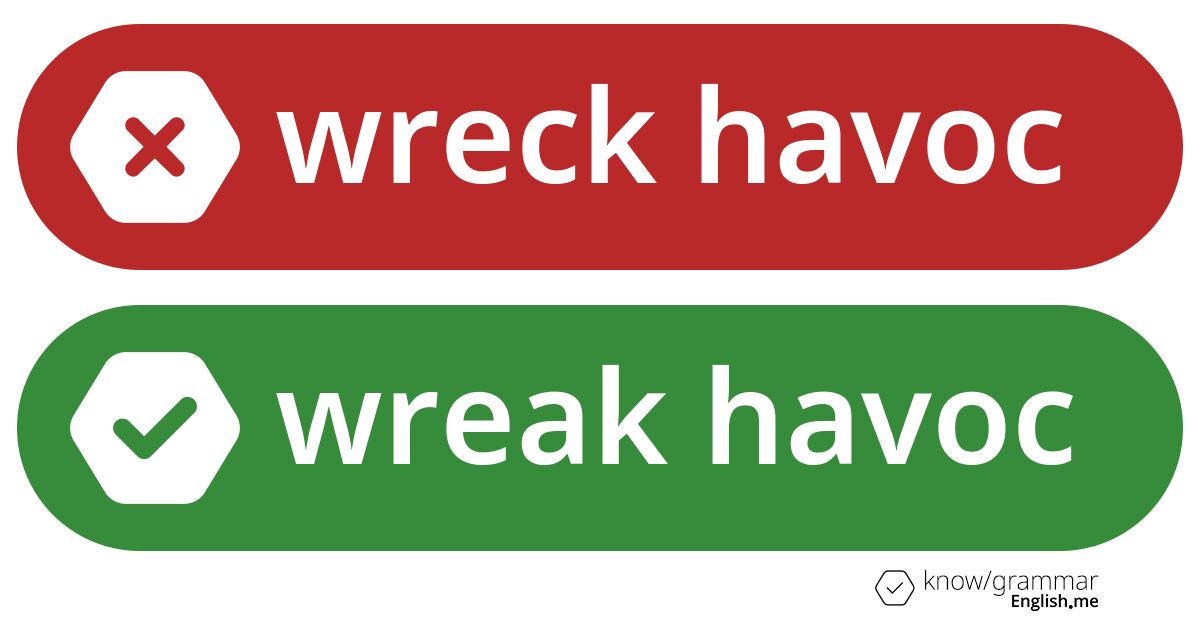Correcting the chaos: why "wreck havoc" is a language misstep
Reviewed and edited by  Lloyd Cooper 21/10/2024, 07:08
Lloyd Cooper 21/10/2024, 07:08
English.me team member
 What kind of error is it?
What kind of error is it?

Spelling and idiomatic expression error
 Why do people make this mistake?
Why do people make this mistake?
People often confuse "wreck" with "wreak" because they sound somewhat similar and are both associated with destructive actions. The phrase "wreck havoc" seems to make intuitive sense to some, as "wreck" means to cause destruction.
 What is correct?
What is correct?
The correct expression is "wreak havoc", where "wreak" means to cause or inflict, particularly in the context of causing chaos or destruction.
 Examples of correct usage
Examples of correct usage
- The storm will wreak havoc on the coastal villages.
- Decisions made in haste may wreak havoc on the company's future.
- The virus wreaked havoc across the entire population.

 English
English español
español française
française italiano
italiano deutsche
deutsche 日本語
日本語 polski
polski česky
česky svenska
svenska Türkçe
Türkçe Nederlands
Nederlands